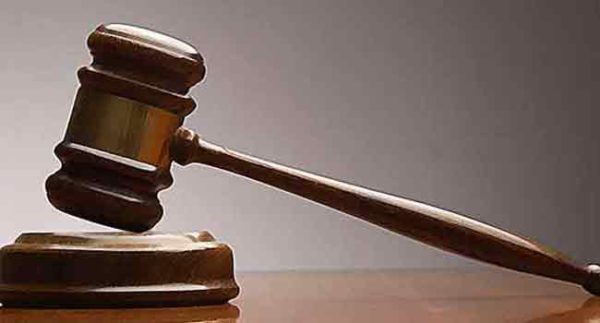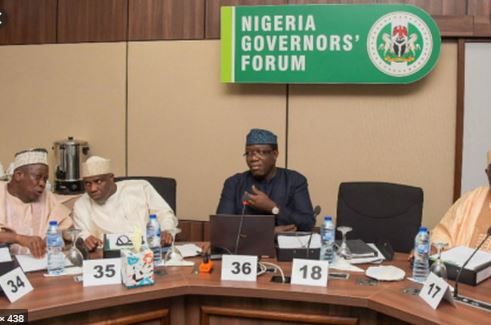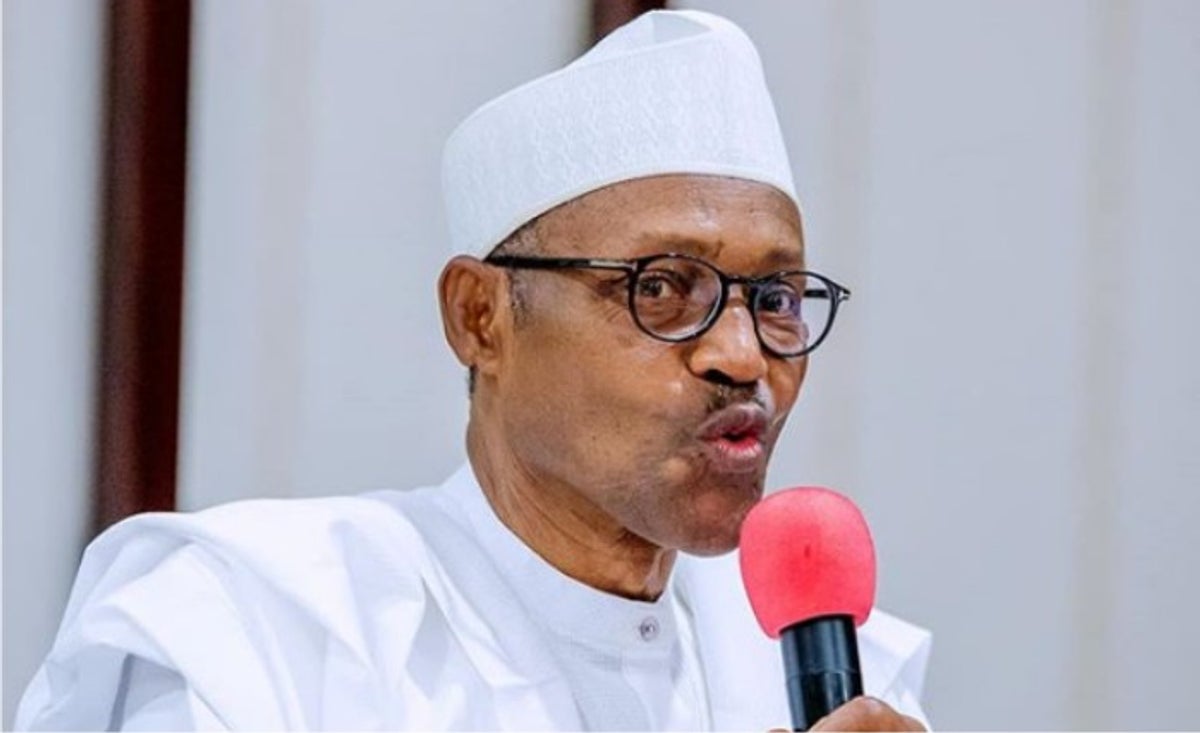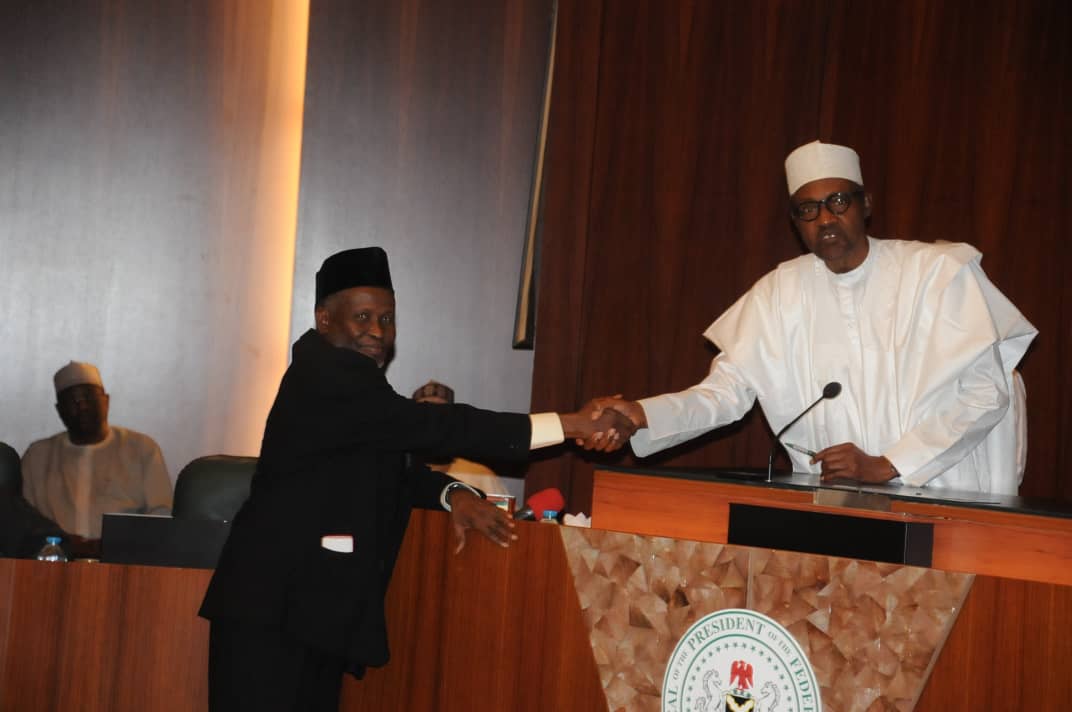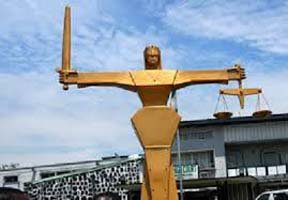…Onnoghen’s removal was a bad signal
…it was a sad and gloomy judicial calendar for Nigerians
….Judiciary and the ‘Hurdle Race’ of Safeguarding Rule of Law in 2020 after a challenging 2019
Emmanuel Bagudu, Abuja
No doubt the year 2019 was very challenging for the Nigerian Judiciary. The third Arm of Government during the year had to battle to resist impositions from the Executive who on different occasions depleted the Rule of Law at the expense of effective Justice delivery.
From the removal from office of the former CJN Walter Onnoghen without due process to obvious habitual defiance to court orders by the executive leading to abuse of human rights; the executive indeed gave the judiciary a very high hurdle to cross to ensure that Justice delivery in the country is not compromised in the year 2019. One among many instances was the unlawful detention of the leader of the “revolution now” Omoleye SOWORE whose ordeal caused a national outcry from the civil society Communities whose cries reached the Nigerian international Community. It will be recalled that Sowere’s continued unlawful detention provoked trial as Judge Ijeoma Ojukwu joined the records of the few Judges that stood for rule of law by threatening the Executive.
“Take notice that unless you obey the direction contained in the order of the Federal High Court of Justice, Abuja made on the 6 November 2019, which ordered you to release the Defendants/Applicants in Suit No; FHC/ABJ/CR/235/2019 forthwith, you will be guilty of contempt of court and will be liable to be committed to prison….” Trial Judge Ijeoma Ojukwu threatens Director-General of the State Security Service Yusuf Bichi. That happened in November. It was then adjudged to be one of the most courageous move by a sitting judge to safeguard the Rule of Law.
This resistance of incursion into the Justice system by the Executive which Justice Ojukwu did if emulated on different occasions by other Judges will increase the credibility of the Judiciary in the year 2020.
This is not to say that the Judiciary knows it all. Lessons must be learned from some abnormalities that happened in 2019.
The controversial exit of the former Chief Justice of Nigeria CJN Walter Onnoghen made the list of abnormalities in the Judiciary. The National Judicial Council (NJC) was not given the room to try Onnoghen on Allegations of Corruption before he was given the boots by President Mohammadu Buhari and neither did the NJC resisted such abnormality.
One Dennis Aghanya petitioned the embattled former CJN for not properly declaring his assets as required by the law. Onnoghen’s suspension followed an order by the Code of Conduct Tribunal (CCT) where he was arraigned in January 2019.
The former CJN eventually resigned from office later in April 2019 after he was convicted by CCT, albeit, he was billed to vacate office in December 2022 when he would clock 70. Though this caused a lot of public outcry, the Judiciary continued its proceedings with high profile Post-election litigations in hundreds still counting in various courts. The Judiciary tried to resist the temptation of carrying over post-election cases to 2020.
The biggest of them all which caused alot of tension in the country was resolved in October when the Chief Justice of Nigeria laid to rest all anxieties in the Presidential Election Petition filed by the opposition Peoples Democratic Party (PDP) seeking the nullifaction of the Election of Muhammadu Buhari as President of Nigeria. The Supreme Court ruled in favour of President Buhari. Other appeals from governorship elections were also resolved by the Apex court with likes of Nasir Elrufai of Kaduna state and Abdullahi Ganduje of Kano State and a host of others being declared legally elected.
Moving forward, the year 2020 will be very interesting. The industrial Court of Nigeria won’t be free as usual, Labour related cases are expected to throng the industrial Court especially now that issues of Minimum wage is on the front burner.
The executive will not calm down in its quest for credibility and so will engage anyone that crosses its way in a legal feud. The year 2020 will be just three years to the General elections and it’s expected that gaining prominence and winning the heart of the people will be the gimmicks of politicians especially those in Government. This will make the courts busy. A lot of hurdles are being projected in 2020. Judges must resist intimidation, bribery, and blackmail from politicians for the interest of the sanctity of the Rule of Law.
Ongoing and incoming high profile cases should not threaten Judges. Already a Judge of the Federal High Court Abuja Ahmed Mohammed had withdrawn from being adjudicator in the case of alleged treason between the Federal Goverment and leader of the Revolution Now movement Omoyele Sowore. This according to the judge was because of allegations of bais coming from the defendants. This can be prevented if counsel play according to the rules of the game. Lawyers in both private and public practice have a role to play in helping the Judiciary succeed in 2020.
They must be proactive serving their judicial processes, justice delayed is justice denied. There should be a massive improvement in the pace of Justice delivery in 2020. Corruption must be resisted as well. These and many more professional practice in the bar and bench will give the Judiciary in 2020 a face lift.
In conclusion here are the views of some lawyers.
“The Nigerian Judiciary in 2019 reached an all time low, it was a dim and dark phase that history will remember and several severe questions shall be asked of the political actors, especially those who lurked around the corridors of powers, who quickly betrayed their professional and calling for political and maybe pecuniary considerations. Despite this dim and bleak introductions, there were several reasons to smile and be proud of, the Nigerian spirit of resilience forbids and prevents us to wallow needlessly in the dark, there have been several positive steps and bold decisions reached in 2019, I shall spend the next few paragraphs highlighting the highs and lows of the Nigerian Judiciary on 2019.
With the enactment of the Federal High Court Rules 2019, the Judiciary had taken steps to bring the federal high courts up to date in terms of filling penalties, which will in turn produce speedy and expeditious attendance to civil matter this is indeed a step worthy of commendation. Another incident worthy of mention is the supreme courts ruling in Abdullahi V Adetutu in 2019, that has effectively overruled her self in the earlier case of Benjamin V Kailo. As it stands, the issues as it relates to registration of title has been judicially caged having returned back to the earlier position. I must also commend several swift decisions across this nation as far as election petition were concerned. And even in criminal matters.
However, I will say overall it was a sad, dark and gloomy year in our Judicial calendar, one that posterity will call all of us to answer. Let’s be clear, as a nation one of our greatest strength yet greatest bane, is our short memory, and swiftness to jump on to the next big story, nothing last in our mind for that long, as Josphine Anenih, once stated, Nigerians suffer from Political Amnesia.
The Suspension of the Chief Justice of Nigeria by the president is a scar that would last longer and would certainly outlive the this current dispensation, regardless of where one stands in the debate, or political affiliation, a wrong so deep and unfathomable could never have gone by without the active connivance of those close to the president with legal background. Our country is rooted in separation of powers, whereas, the president heads the executive, he has no powers or limits to dabble into the realm of the judiciary, how can you undo what you cannot do? The president may only Appoint the CJN , if such is person is recommended by the National Judical council, and that appointment cannot stand until and unless the senate confirms that person, therefore the CJN does not serve at the pleasure of the president, how then can a president suspend the CJN. Yet we the people allowed this executive waywardness to sail through. Indeed the president has all the powers to investigate and even arrest the CJN, and a magistrate can even convict such a person of his crimes are proven, but for the president to suspend or dismiss, he use the judiciary to harass a sitting CJN, the message he clearly wanted to pass has been passed.
How can the Judiciary be independent when a judge can be unceremoniously removed? Even if the president had the best intention, his action has placed a stain in the judiciary that would take concerted effort to repair.
Assuming without conceding that dismissed (not resigned) CJN was of a questionable character, the message that even lower judges of unimpeachable character would ask themselves whenever they have a reason to disagree with the executive is whether they would not be subjected to public ridicule like the last CJN was. Like stated earlier, regardless of the president’s best intentions and motive, an ugly precedent had been set, a Pharaoh who knows not Joseph, could use this precedent for his own mischief and evil; and that’s the problem with ‘gree die politics’. Lastly, I fear that the bench and even the bar, have fallen into a new low of ethno-religious divide, lawyers first reason as Muslims/Christians southerners/Northerners before people of noble calling, this is extremely disturbing. The judiciary is a glue in this nation, we must pay extra attention to the welfare and well being of legal practitioners in the bench and bar.
Lastly, I am an unrepentant optimist, I see greater days ahead of us, I see a more united an committed bench and bar in 2020, I see a greater, happier more united Nigeria.
By Osigwe Ahmed Momoh; A Legal Practitioner writes from Abuja.
“The performance of the Judiciary in 2019 is quite commendable, however it will go without controversy and recommendations in the roles it plays on burning issues in our Nationals socio-political events that occurred in the year in review.
While steps are been taken for the fight for the independence of the Judiciary, there is need to carry out an inhouse cleaning of the Men behind the Masquerades in the hallowed temple of Justice.
A quick reminder of events, to the average Nigerian is that the law of the land is measured in two ways which are implemented or followed based on the class of individuals involved.
A recall of the events in 2019, the removal of the Hon. Justice Walter Onnoghen as the Chief Justice of Nigeria with the issuance of restraining orders by 3 Courts of Coordinate jurisdictions and subsequent renewal of such orders.
The role played by the Code of Conduct Tribunals in the said saga are issues that calls for Academic review and possible legislation to forstall the recurrence.
The style and measurement used granting interim orders as earlier stated varies in my view which depend on the parties involved.
In 2019, the lower bench, that is the Magistrate, Customary and Sharia Courts some are majorly an appendage of the Executives particularly the Nigerian Police Force, while attention are channeled to the Courts of records, the lower Bench need human Capital development.
The judicial crisis that caught attention of Nigerians and the comity of Nations is the Sowore’s issue that A Court Order DSS for the detention of a citizen, the said Order was obeyed by DSS with Alacrity, thereafter, the same Court Ordered the same DSS for the release of the same Citizen, the same DSS outrightly disregarded the same Court Order to release the same Citizen without even an Appeal filed.
Furthermore, the same DSS approached the same Court to arraign the same Citizen before the same Court and the same Court entertained the same DSS and remanded the same Citizen in custody of the same DSS.
So therefore Comrades, going by the above circumstances, it is clear that what we should be fighting for is not the INDEPENDENCE of JUDICIARY as popularly being canvassed but what we should be fighting for is that the faces behind the Masquerades in the Hollow Temple of Justice to carefully understand the Jurisprudence of The Rule of Law, The Law of Rule and The Doctrine of Seperation of Power.
We hope and expect that come 2020, the Judiciary will live upto expectation, not only seeking for the independence of the Judiciary but also seen practicing it through their judgments and actions towards the non compliance of the Judgment, because they are the custodians of our Nation’s Peace.
Tohwo Oseruvwoja Esq.”
” This 2019, the judiciary was once more disregarded and desecrated by the government and its agencies. This shows the complete disregard for the rule of law and as a result a diminishing hope for the common man. I hope that in 2020, the judiciary will purge itself of elements (corruption, nepotism, fraternizing with political leaders etc) that make room for incessant disregard.
Augusta Yaakugh Esq”
